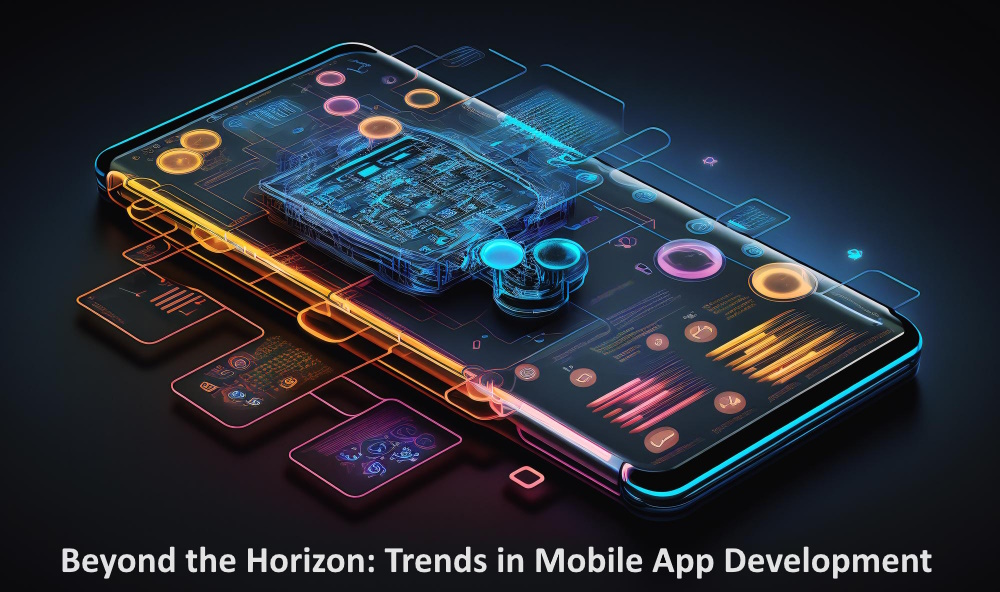As we delve deeper into the digital age, mobile apps are increasingly becoming a crucial part of our daily lives. From ordering food to booking appointments, from health tracking to virtual learning, our reliance on mobile apps is profound and ever-increasing. As such, the arena of mobile app development is rapidly evolving, with developers constantly on the hunt for innovative ways to meet user demand and stay ahead of the curve.
Impact of AI and ML on Specific Industries
Artificial Intelligence (AI) and Machine Learning (ML) are radically transforming numerous industries. Their advanced capabilities are streamlining operations, enhancing customer experience, and fostering innovation.
- Healthcare: AI and ML are revolutionizing healthcare with predictive analytics, personalized medicine, and advanced imaging capabilities. They are instrumental in improving diagnostics, enabling remote patient monitoring, and optimizing patient care pathways.
- Finance: In finance, AI and ML are used extensively for fraud detection, risk management, and algorithmic trading. They’re also helping to provide personalized financial advice to customers.
- Manufacturing: The manufacturing sector is leveraging AI and ML for predictive maintenance, improving supply chain efficiency, and enhancing product quality through real-time monitoring and control.
- Retail: In retail, AI and ML are enhancing customer experience through personalized recommendations, optimized inventory management, and improved logistics.
- Transportation and Logistics: In this sector, AI and ML are being utilized for optimizing routes, predictive vehicle maintenance, and autonomous vehicle technology.
One of the most intriguing developments in recent times has been the integration of Artificial Intelligence (AI) and Machine Learning (ML) into mobile apps. These technologies bring about a host of potential enhancements, enabling personalized user experiences, predictive analytics, and smarter decision-making capabilities. They are transforming the way mobile apps function, creating a new epoch of intelligent, responsive, and user-friendly applications.
Ethical Implications of AI and ML in Mobile Apps
As AI and ML continue to pervade mobile applications, it’s crucial to address the ethical implications of these technologies. While they offer numerous benefits, they also raise significant concerns that need to be addressed to ensure they are used responsibly and ethically.
- Data Privacy: Mobile applications powered by AI and ML require vast amounts of user data to function optimally. This raises concerns about how this data is collected, stored, and used. Ensuring data privacy is a fundamental ethical obligation.
- App Bias: AI and ML models are only as good as the data they’re trained on. If the training data is biased, the models could reinforce harmful stereotypes, leading to discriminatory outcomes in app functions. Ensuring fairness in AI and ML is crucial.
- Transparency: Users should be informed about the use of AI and ML in apps, how their data is being used, and the reasoning behind certain AI-driven decisions. Transparency is vital to maintain trust.
- Security: With increased data collection and processing comes the increased risk of data breaches. Ensuring robust security measures are in place is a critical ethical consideration.
However, along with the myriad potential benefits, there are also significant challenges that developers must navigate. Data privacy and security are paramount, as AI and ML require access to large volumes of user data. The complexity of integrating these technologies can lead to a more difficult and time-consuming development process, and they can be resource-intensive, potentially affecting app performance. Additionally, developers must be mindful of potential algorithm bias, ensuring fairness in app functionality.
The Role of User Experience in Mobile App Development
User Experience (UX) is an essential aspect of mobile app development trends. It refers to the overall experience a user has while interacting with the application. The main goal of UX is to ensure that the app meets the user’s needs in the most effective, efficient, and satisfying manner. It impacts user satisfaction, engagement, and ultimately, the success of the application.
- User-Centric Design: Developers need to prioritize user needs, preferences, and behaviors in the design process. The app should be intuitive and easy to navigate, which helps to improve user engagement and retention.
- Responsiveness: A good user experience includes quick loading times and seamless interaction. This includes optimizing the app for different devices and screen sizes.
- Consistency: The layout, design elements, and navigation should be consistent throughout the app to avoid confusing users.
- Feedback Mechanisms: Implementing mechanisms for users to provide feedback helps developers identify issues, make necessary adjustments, and improve the overall user experience.
- Accessibility: The app should be accessible to all users, including those with disabilities. This involves using large text sizes, contrasting colors, and features like voice over or closed captioning, for instance.
Despite these challenges, the potential rewards are substantial. Those best mobile app development company who can successfully integrate AI and ML into their apps, while effectively addressing the associated challenges, stand to gain a significant competitive edge. As we look to the future, one thing is clear: the mobile app development landscape is set for exciting times ahead, and staying informed of these trends will be crucial for those looking to lead the way.
Author Bio:
I am Kiran Patel, a technology enthusiast. Blogger & Author by passion. Whether you talk about passion or profession, by both I am a writer! I am a Guest Author on many reputed sites and have been sharing my knowledge since many years now.

